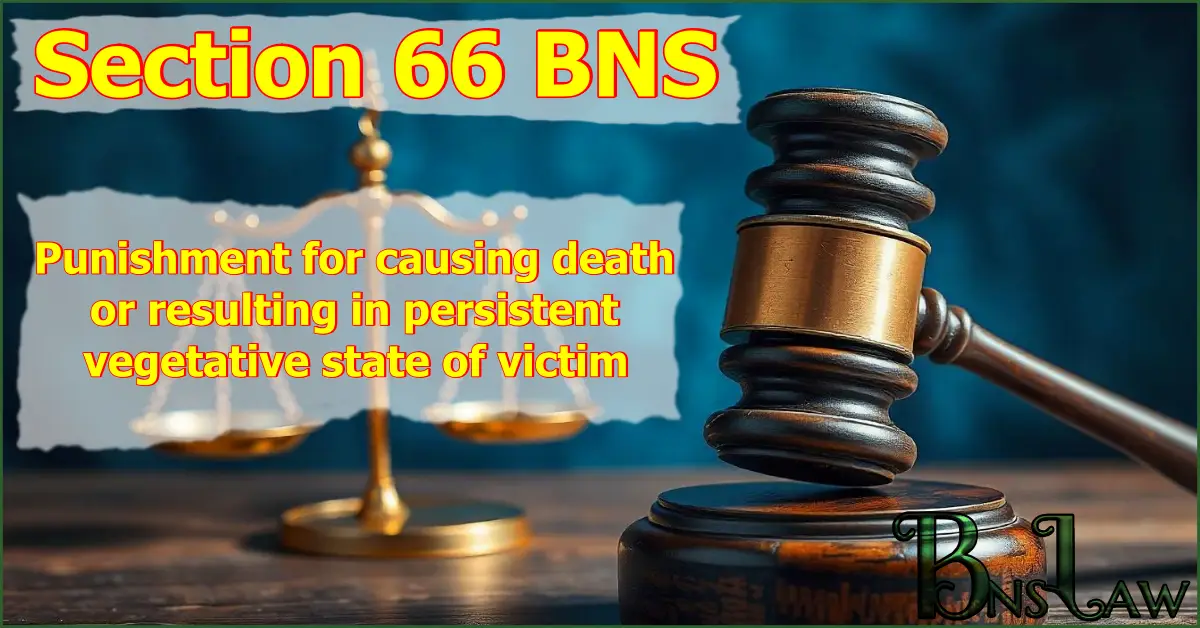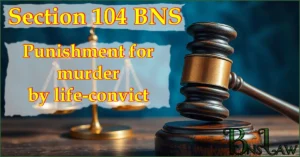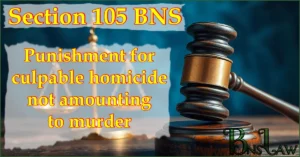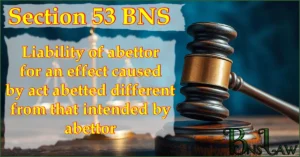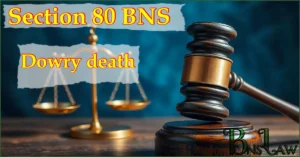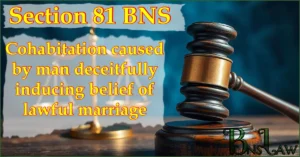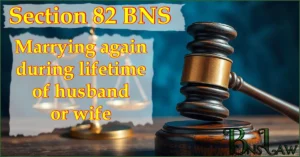Section 66 BNS | BNS 66
Whoever, commits an offence punishable under sub-section (1) or sub-section (2) of section 64 and in the course of such commission inflicts an injury which causes the death of the woman or causes the woman to be in a persistent vegetative state, shall be punished with rigorous imprisonment for a term which shall not be less than twenty years, but which may extend to imprisonment for life, which shall mean imprisonment for the remainder of that person’s natural life, or with death.
READ OTHER SECTIONS OF CHAPTER V — OF OFFENCES AGAINST WOMAN AND CHILD
FAQs of BNS Section 66
-
66 BNS punishment and fine
Punishment and fine under Section 66 of the BNS: Rigorous imprisonment for not less than 20 years but which may extend to imprisonment for life which shall mean imprisonment for the remainder of that person’s natural life or death.
-
66 BNS cognizable or not
The offence under Section 65 of the BNS is cognizable.
-
66 BNS bailable or not
The offence under Section 65 of the BNS is non-bailable.
-
66 BNS trial court
Offence specified in Section 65 of the BNS is triable by the court of session.
Important Points
- Cognizable Offences: These are offences where a police officer can arrest a person without a warrant.
- Non-Cognizable Offences: These are offences where a police officer cannot arrest a person without a warrant.
- Bailable Offences: These are offences where the accused can get bail from the police station itself. All bailable offences are listed in the First Schedule of the Bharatiya Nagarik Suraksha Sanhita (BNSS).
- Non-Bailable Offences: Offences in which bail is not granted directly from the police station but after hearing the case in the court, the judge decides when bail will be granted. All non-bailable offences are listed in the first schedule of the Bharatiya Nagarik Suraksha Sanhita (BNSS).
- In the above FAQ, “trial court” means the court that has jurisdiction to try the offence.
- In the above FAQ, the expression “Magistrate of the first class” and “Any Magistrate” does not include Executive Magistrates.
Read other Sections of the BNS
Reference Link: New Criminal Laws (BNS), Ministry of Home Affairs

